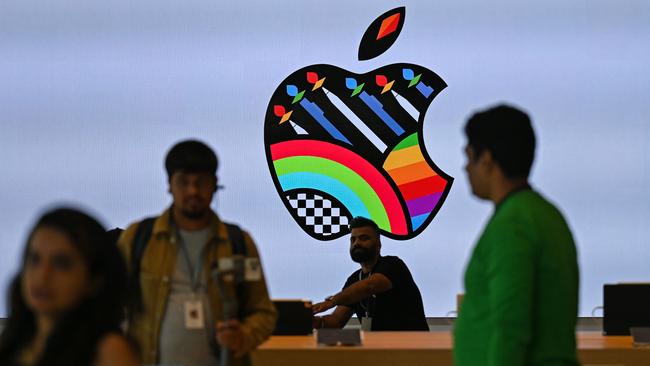Apple makes the iPhone a home for US savings accounts
In the US, Apple Card credit-card holders can open an account with a 4.15 per cent annual percentage yield.

Apple joined the competition for bank deposits in the US on Monday with the launch of a high-yield savings account that pays an annual percentage yield of 4.15 per cent.
The high-yield savings accounts, available in conjunction with Apple’s credit card, are one of the tech company’s latest steps into the financial-services space, which also include an option to allow customers to “buy now, pay later” on certain of its hardware products.
The company partnered with Goldman Sachs to offer consumers those options, part of Apple’s effort to transform the iPhone into a digital wallet that can help keep consumers linked to the software ecosystem behind its devices.
The savings accounts require no minimum deposit and are protected by the Federal Deposit Insurance. There is a maximum balance of $250,000.
Apple Pay is a dominant competitor in digital payment, but Apple has more competition when it comes to savings accounts.
Money can’t be spent directly from the Apple savings account, but would first need to be transferred to a checking account or Apple Cash.
Though the 4.15 per cent rate is higher than that of the standard savings account, a handful of online banks offer rates as high as 5 per cent APY, according to Bankrate. But popular high-yield savings products from Ally Bank or Goldman’s own Marcus offer lower rates than Apple’s: 3.75 per cent and 3.9 per cent, respectively.
The favourable rate, combined with Apple’s existing brand recognition, could be especially attractive to new customers given concerns about the stability of the banking industry after the collapse of Silicon Valley Bank, said Yiming Ma, assistant professor of finance at Columbia University.
“I think what is special in this case is Apple is Apple,” Prof. Ma said. “Everyone knows what Apple is, and many people already have an Apple Card.”
Apple has also worked with certain states in the US to create legal digital versions of driver’s licenses. Revenue from these products is reported in the company’s services unit, which also includes sales from App Store commissions for gaming and music software and payments from Alphabet Inc. for Google to be the default browser used in Apple’s Safari browser on iPhones.
Services revenue reached $US78bn in the fiscal year that ended in September, up about 14 per cent from the previous year.
The Wall Street Journal



To join the conversation, please log in. Don't have an account? Register
Join the conversation, you are commenting as Logout